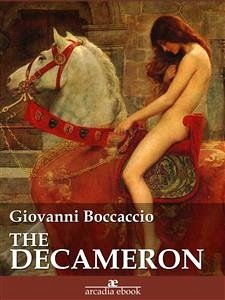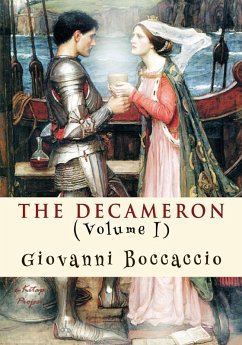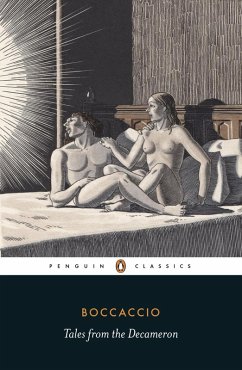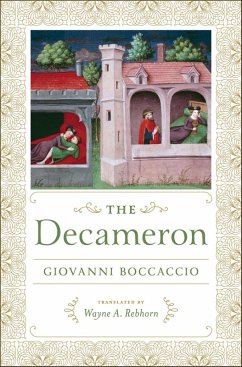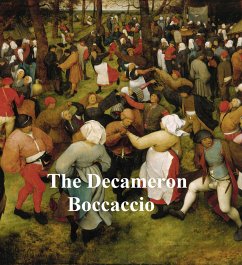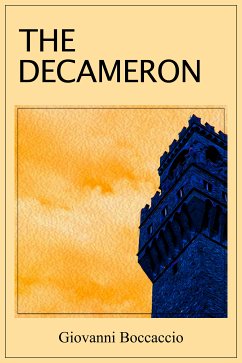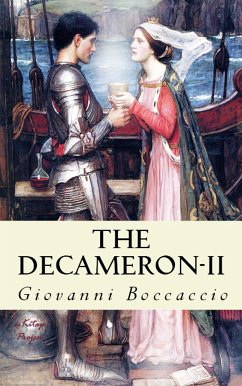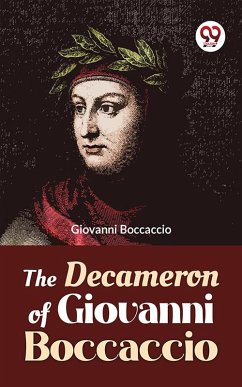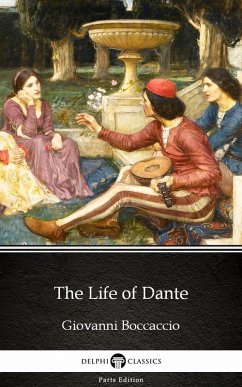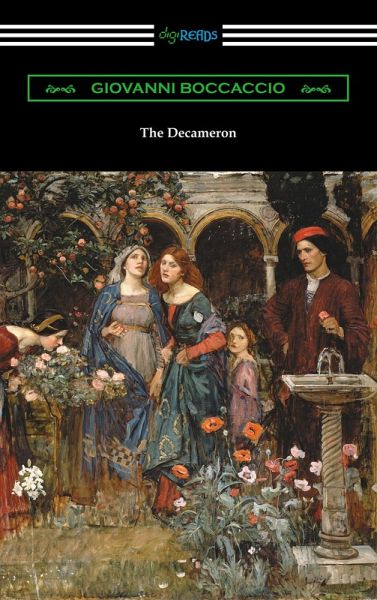
The Decameron (eBook, ePUB)

PAYBACK Punkte
4 °P sammeln!
Written in the middle of the 14th century as the Bubonic Plague decimated the population of Europe, "The Decameron" is a satirical and allegorical collection of stories by Italian author Giovanni Boccaccio. Constructed as a series of "frame stories," or stories within a story, the narrative follows seven young women and three young men who take refuge in a secluded villa outside Florence in order to escape the Black Death. During ten evenings of their stay, each of travelers takes turns as storyteller to pass the time. Their stories relate tales of love, both happy and tragic, examples of the ...
Written in the middle of the 14th century as the Bubonic Plague decimated the population of Europe, "The Decameron" is a satirical and allegorical collection of stories by Italian author Giovanni Boccaccio. Constructed as a series of "frame stories," or stories within a story, the narrative follows seven young women and three young men who take refuge in a secluded villa outside Florence in order to escape the Black Death. During ten evenings of their stay, each of travelers takes turns as storyteller to pass the time. Their stories relate tales of love, both happy and tragic, examples of the power of fortune and human will, and exhibitions of virtue, cleverness, and trickery. Boccaccio's work is not only important for its superb literary quality but for its examination of the changing cultural values that defined the transition from medieval times into the renaissance. The virtues of intelligence and sophistication of the increasingly urbanized and mercantilist Europe are shown as superior to the relative simplicity and piousness of the feudal system. More than the sum of its parts, "The Decameron" is a milestone in the history of European literature, an influential and enduring masterpiece. This edition is translated with an introduction by J. M. Rigg.
Dieser Download kann aus rechtlichen Gründen nur mit Rechnungsadresse in A, D ausgeliefert werden.




